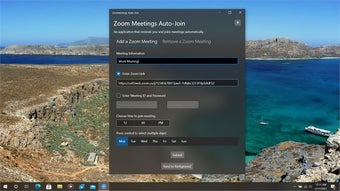
Britain asks to join the Trans-Pacific Trade Group

Boris Johnson is making a formal application to join a trade group in the Pacific to mark the first anniversary of Britain’s departure from the EU, the world’s largest trading bloc.
Johnson is hopeful that Joe Biden, the President of the United States, will also join the group and open a backdoor to deepen trade ties between the United Kingdom and the United States as hopes for a quick trade deal between London and Washington is fading.
Critics say a trade deal with eleven countries halfway around the world would bring limited economic benefits to the UK and that there is no way Biden will be in a rush to join the group.
Johnson said joining the Comprehensive and Progressive Trans-Pacific Partnership Agreement would demonstrate that “new partnerships will be forged a year after we leave the EU.”
“The candidacy as the first new country to join the CPTPP demonstrates our ambition to do business with our friends and partners around the world under the best possible conditions and to be a strong supporter of global free trade.”
The CPTPP includes fast growing economies like Mexico, Malaysia and Vietnam, as well as established regional economies like Japan, Australia, New Zealand and Canada.
UK Trade Secretary Liz Truss will meet with ministers from Japan and New Zealand on Monday to ask to join the CPTPP. Formal negotiations are due to start this year.
Truss believes joining the association would boost trade, which is already worth £ 111 billion and has grown 8% a year since the UK voted to leave the EU in 2016.
She believes this will liberalize digital trade, remove tariffs on products like whiskey and cars faster, and allow faster and easier visa procedures for entrepreneurs traveling to CPTPP countries.
British officials are also hoping that if the Biden administration joins the group, there may be a higher price to pay for using the CPTPP as a means of forging commercial ties with the United States.
“We are convinced that the United States shares our ambition to join the CPTPP, which would mean closer trade ties on a plurilateral basis,” said a British official.
However, the new US president has promised to improve his own country’s economy before signing new trade deals, and neither a UK-US trade deal nor CPTPP membership is considered. as a high priority.
“President Biden has said on several occasions that the CPTPP must be renegotiated,” said a US government official. “The government is currently focused on domestic investment and economic growth that supports America’s middle class.
“As we review current and potential deals with our partners, management does not immediately seek to sign new business before making significant investments in our middle class home.
The UK motion to join a Pacific trade group and end free trade with the EU (Brexit created huge bureaucracy and border controls) is one of the obvious paradoxes of politics British commercial.
Trade secrets

Trade Secrets is Heaven32’s daily report on the changing face of international trade and globalization.
Sign up here to understand which countries, companies and technologies are shaping the new global economy.
Distance is always a key factor in trading. Even a recent UK trade deal with the vast Japanese economy, essentially a revamp of the existing deal between the EU and Japan, has been seen by a UK government study as likely to boost UK GDP in the long run. . of about 0.07 percent ”.
Another UK government study in 2018 suggested that trade deals with non-EU countries and blocs such as China, India, Australia and the Gulf States of Southeast Asia would only increase UK GDP by 0.1 to 0.4% in the long run.
In contrast, the economic ramifications of Boris Johnson’s “Canada-style trade deal” have been assessed by the UK Treasury as a likelihood that UK GDP will decline by nearly 5 percent in the long run.
David Henig, co-founder of the UK Trade Forum, said a Pacific deal would bring limited economic benefits to Britain and that there was no guarantee that Truss’ proposal would be accepted.
As with the agricultural issues that have plagued the UK’s trade negotiations with the Trump administration, UK food standards regulations could also complicate CPTPP negotiations with countries like Australia and New Zealand.
But on trade policy, Henig said Britain deserves credit for joining a group of “like-minded” countries. He said that while the EU, US and China dominated trade policy, this group could be considered a “middle class club”.



